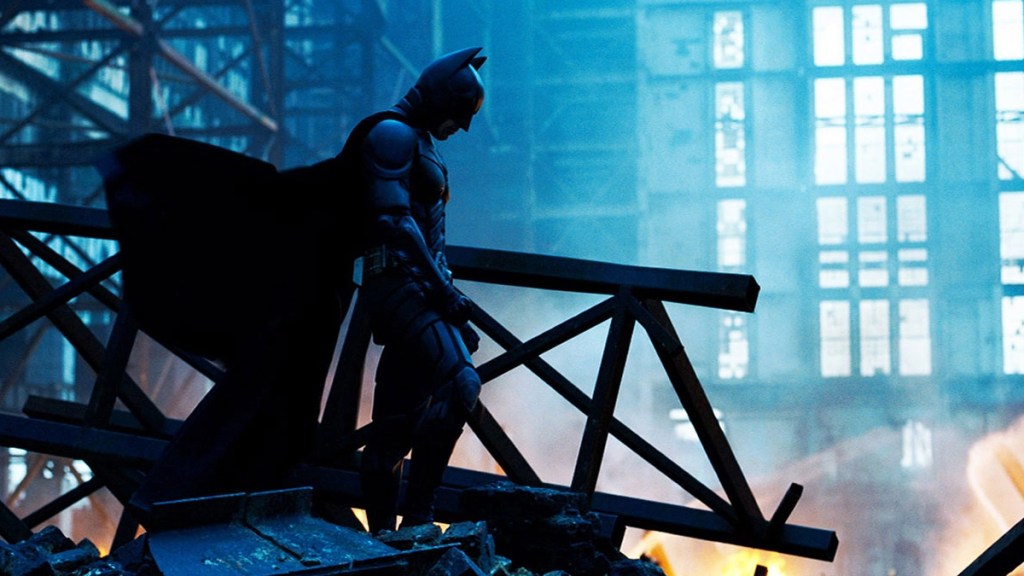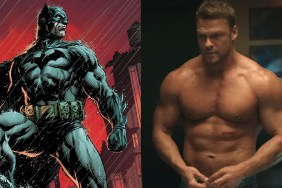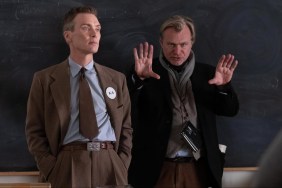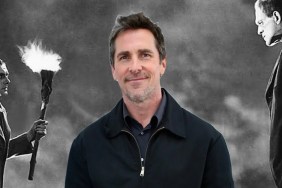Fifteen years ago this week, Christopher Nolan released a little movie called The Dark Knight which delivered what I consider the best comic book film to date. It’s a rare example of an anticipated Hollywood blockbuster that lives up to the hype, an exceptional filmmaking piece that has only improved with age.
Everything here clicks. Nolan’s tight direction, Hans Zimmer and James Newton Howard’s thunderous score, the wild action sequences and captivating psychological themes, the dynamic between our hero and villain — The Dark Knight dazzles over a decade after its initial release.
Of course, we remember the pic for Heath Ledger’s incredible, Oscar-winning portrayal of the Joker. By all accounts, the late actor excels in the role, stealing every scene he appears in and redefining the classic villain for the modern age. While other actors have portrayed the Joker and received accolades, Ledger’s interpretation remains the most memorable. This Clown Prince of Gotham is cunning, cruel, and entirely beyond reason. You can’t take your eyes off him.
Christian Bale is a great Bruce Wayne
Still, all these years later, I couldn’t help but marvel at Christian Bale, whose performance as Bruce Wayne/Batman is strong enough to warrant its own list of accolades. Ostensibly serving as the straight man to Ledger’s manic clown, Bale’s portrayal here is quiet, reserved, but emotionally resonant. He conveys so much, even while concealed within that bulky costume. A tilt of the head here, a pointed expression there, all come together to deliver one of the most criminally overlooked performances of the last two decades.
Ironically, Bale would later win an Oscar for The Fighter, where he enjoys the showier role opposite Mark Wahlberg’s straight man. Wahlberg, likewise, was overlooked for his quiet but effective performance because (for whatever reason) the Academy hates subtlety.
And that’s really the name of the game here: subtlety. Bale’s Bruce Wayne harbors demons that continue to torment his soul. You see it in his eyes, in the way he puts on a phony Patrick Bateman-esque smile and attends decadent parties, in the way he tosses a glass of champagne over a balcony after delivering a speech to a room full of guests, in the way he quietly observes the Joker and desperately tries to calculate his next move. In this scene, he interrogates Sal Maroni, but can’t shake any information from him, drawing an almost exasperated growl:
At one point, the Joker calls into a news station and threatens the life of Coleman Reese over a live TV broadcast. Nolan cuts to Bruce, watching the nightmare unfold, a look of almost abject contempt on his face. Quietly, he listens to the Joker’s demands before picking himself up, buttoning his jacket, and heading out to work. Again, his acting is subtle, but you understand what the poor guy is dealing with — a villain he doesn’t understand, the loss of his friend, Rachel, and the weight of Gotham City hanging on his shoulders.
As Batman, he’s even more conflicted. The Dark Knight appears bored when we first see him during a sequence involving the Scarecrow early in the film. He seizes the chance to permanently deal with the criminals during the spectacular Hong Kong sequence, effortlessly carrying out the operation and capturing Lau. There’s no sense of thrill or joy in Batman’s actions. He’s simply trying to tie up loose ends so he can move on with his life.
By film’s end, however, Batman limps to his motorcycle — tired and broken but committed to his chosen life. When Harvey asks why he was the only one to lose everything, Bruce momentarily breaks character and whispers, primarily to himself, “It wasn’t.” Gah. That’s heart-wrenching.
Earlier, after capturing the Joker, Batman expresses how Gotham has shown its willingness to believe in something good. In response, the clown remarks, “Until their spirit breaks completely.” Batman bends over, exhausted, possibly disheartened by his adversary’s refusal to heed reason. This subtle act sharply contrasts with Ledger’s fierce nature. Batman yearns to find a reason to persist in the struggle, an end to the façade, and Bale skillfully portrays the character’s unwavering determination while gradually revealing a hint of vulnerability. Even he is uncertain how this story will unfold.
I also love the classic interrogation scene where we actually see Batman snap for the first time after the Joker goes too far with his revelation that Rachel and Harvey are about to die. It takes everything in Batman’s power not to pummel his enemy’s face to a pulp. We witness the rage, pain, anguish, and frustration. Ledger deservedly receives high praise for his jaw-dropping performance here, but he’d not be nearly as effective if Bale didn’t hit all the right beats.
I appreciate the quiet nuance in Bale’s portrayal of Batman. It’s easy to overlook, but the actor demonstrates why he was the perfect choice for the character. Without him, The Dark Knight ceases to exist. He grounds the onscreen chaos and helps elevate a great film to a classic.
Intriguingly, Bale recently stated his disappointment with his performance, telling Yahoo.com, “I didn’t quite manage what I hoped I would throughout the trilogy. Chris did, but my own sense of self is like, ‘I didn’t quite nail it.’”
He continued: “Heath turned up, and just kind of completely ruined all my plans,” Bale said. “Because I went, ‘He’s so much more interesting than me and what I’m doing.’”
Hogwash. Bale is mesmerizing as The Dark Knight and one of the main reasons the picture still kicks ass 15 years later. It’s a masterpiece.










